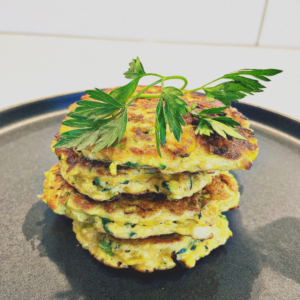(this is not a diet post)
More than half the world’s population is on track to be overweight or obese by 2035. Worryingly, obesity rates are rising fastest among children and adolescents.

As a side note: the term “obesity” comes with numerous associations and most of them are not good: the measure itself is not accurate, the mental harm this term causes for people who are classified as obese is huge and it is a term loaded with judgement (ie. “why don’t you just eat less?”) – we are all individuals. I use ‘obese’ here as a way to demonstrate the upward trend, only.
We need to eat less!
Two of the highest risk factors (there are many!) of obesity are type 2 diabetes and cardio-vascular disease (eg. high blood pressure, stroke, heart disease).
(PS. a risk factor is something that increases the chance of getting a disease or condition.)
Obesity is a direct contributor to an increased risk of cardio-vascular disease. 6.8 million people in England are living with some form of cardio vascular disease and even more are at a significantly high risk of joining these numbers. Many are undiagnosed or not yet receiving treatment.
As recently as 25 years ago type 2 diabetes didn’t exist in children. It does now – and it’s increasing. Almost 80 –90% of type 2 diabetes patients are overweight or obese. In the UK 10% of people over 40 have a diagnosis of type 2 diabetes, with around one million undiagnosed.
Could you imagine how many healthcare resources we could free up if we invested more in preventing obesity?
The state of our health system in the UK is very topical at the moment and the pressure to “fix” it is immense. Strikes for higher salaries and better working conditions are justified, but we don’t often hear the argument about prevention.
In the US there are more than 2.8 million hospital stays every year, where the cause or contributing factor is obesity.
Personally, for me the biggest wake-up call was the COVID-19 pandemic. According to the CDC, almost 80% of people who were hospitalised, needed a ventilator or died from Covid-19 were overweight or obese. What?! And what have we done about this? Why haven’t we screamed this from the rooftops?
Anyway, I’ll hop off that pulpit for now, but you get the idea. Governments need to do more … and so do we. Apart from our own health, we need to model behaviours that we want our children to live by.
Everywhere we go we are surrounded by food or food advertising. You go to the cinema – popcorn. Street food has become ever-popular (I’m a big fan, by the way), so you can eat a meal on the go. Fast food (and ever faster drive throughs!) – don’t get me started.
We eat too bloody much!
So, where do we start? Although this is a very nuanced subject, we are all so very individual, there are some basic rules that apply to most individuals:
1. AVOID HIGHLY (OR ULTRA) PROCESSED FOODS
Most foods are processed in some way, to get them onto our grocery shelves, so the focus here is on the “highly” bit.
As a general rule, these are foods that do not represent what they would look like in their natural state or have ingredients that you can’t pronounce or don’t recognise.
Don’t forget processed meats. We should be eating less meat anyway, but processed meats are packed with ingredients that turn toxic when they go through the body’s various processes. Rather, grill a batch of chicken breasts at the beginning of the week, if you enjoy meat on salads and sandwiches. Ditch the hams and pepperonis.
Apart from the weird, unpronounceable ingredients in ultra processed foods, they’re also usually excessively high in sugar and/salt. This not only makes them even worse for you health, they make you want to eat more, which easily leads to overeating. See my post on hidden sugars for more.
Cook at home, from scratch, if you can.
2. MINDFUL EATING
The core principles of mindful eating include awareness of the colours, flavours, smell and texture of your meal. It involves chewing slowly, without distractions like a laptop or TV screen. It is about experiencing and appreciating your food.
A growing body of research suggests that “a slower, more thoughtful way of eating could help with weight problems and perhaps steer some people away from processed food and other less-healthful choices”.
In addition to weight loss, some studies show that we absorb more nutrients when our food is adequately broken down in our mouth, before digestion. This is important, if we eat to nourish our bodies.
Mindful eating can also help you enjoy your food more. Take the time to savour the various flavours and textures as you chew. Our hectic lives too often lead to rushing through a meal without ever taking the time to truly appreciate our food.
Slow down, chew more.
3. EAT UNTIL YOU’RE 80% FULL
You may have heard of Blue Zones. These are essentially the work of a man called Dan Buettner, who, with a team of demographers identified five regions in the world with the highest life expectancy, or with the highest proportions of people who reach age 100.
One of these regions is Okinawa, Japan. Here, females over 70 are the longest-lived population in the world. They also have one of the lowest rates of illness from heart disease, cancer and stroke.
Hara hachi bu – translated as “eat until you’re 80% full.” The Okinawans use this rule to manage their eating habits. We are so used to abundance and mindless eating that we have forgotten to listen to our bodies when they tell us they are satisfied.
Try to put down your cutlery when you feel you are around 80% full. This may take some practise, as we are used to gorging ourselves.
Instead of not finishing your plate of food (we don’t like waste!), dish 80% less than you normally would and go from there.
4. MAKE AT LEAST HALF YOUR PLATE COLOURFUL VEGETABLES
I don’t need to spend precious reading time filling you in on the benefits of vegetables.
Vegetables pack a huge nutrient punch for less calories and they’re loaded with fibre, which helps keep you fuller for longer.
If you fill your plate with vegetables, you’re taking up space that might otherwise be filled with less healthy options and this helps satisfy your body, making overeating less likely.
5. DRINK WATER
Water should be your main beverage. The health benefits are far-ranging and water (not Coke, coffee, soda) is essential to good health.
We can often mistake thirst for hunger. So, whenever you feel yourself reaching for a snack, first have a glass of water to see if that does the trick.
These recommendations are not meant to be used as a dieting or drastic weight loss tool. These are to be implemented as part of a healthy, balanced lifestyle and are one aspect of the many elements of good wellbeing.
If you apply these behaviours to your eating habits, you should find not only will your health improve, you will likely have more energy, better moods and a fantastic new appreciation for the food you eat.








